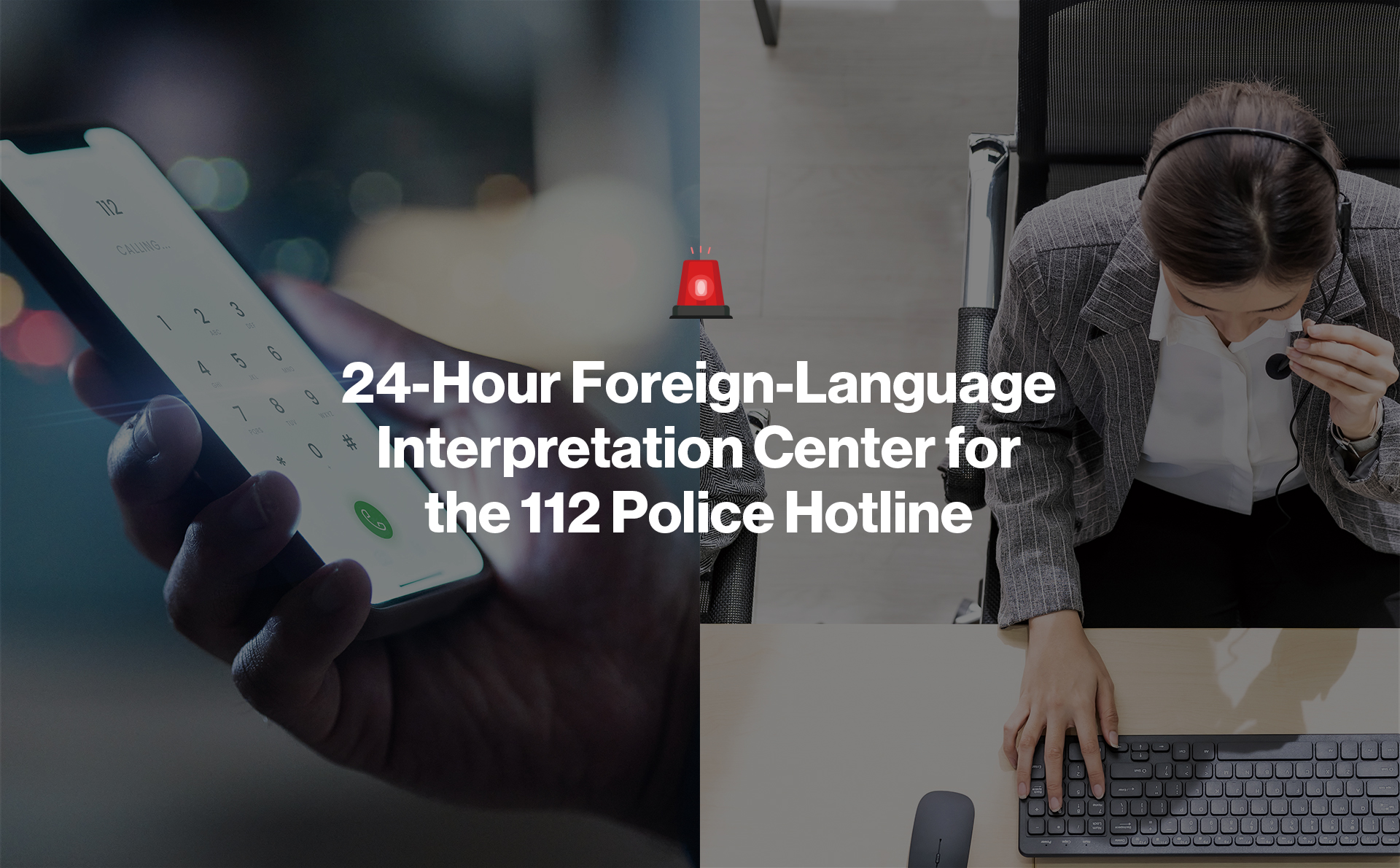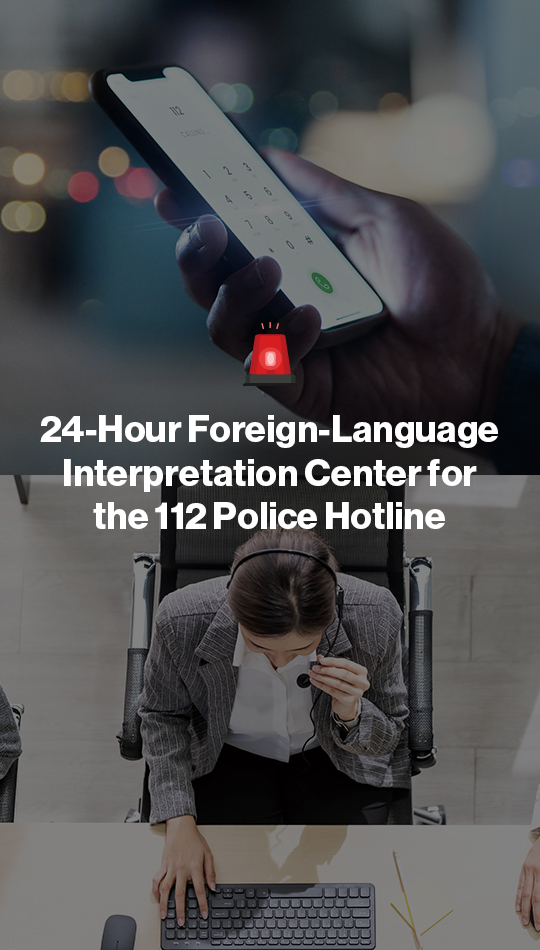

Writer. Sung Ji Yeon
Since its implementation on June 1 last year, the foreign language interpretation center for the 112 police hotline is set for operational expansion. The 112 police hotline, connecting callers to the Korean National Police Agency (KNPA) without requiring an area code, allows individuals to report various crimes through calling or texting. It is expected that with this, tourists, international students and multicultural families will experience quicker and more suitable responses when reporting to 112.
The KNPA has been providing the foreign-language interpretation service for the 112 police hotline—assisted by four interpreters proficient in the top two foreign languages for interpretation, namely English and Chinese—from 9 a.m. to 9 p.m. on weekdays.
After approximately nine months of implementation, an evaluation has revealed that the response time for 112 reports from foreign nationals and the dispatch of on-site assistance have been notably reduced compared to the previous method involving private interpretation services. This improvement has resulted in heightened on-site responsiveness and greater convenience for law enforcement officers and users reporting incidents.
When a foreigner reports to 112 and engages in a three-way call with a 112 interpreter, the average response time was found to be 3 minutes and 52 seconds. This marks a significant improvement—with a reduction of 2 minutes and 21 seconds—compared to the response time of 6 minutes and 13 seconds when using private interpretation services.
In light of this, the KNPA plans to expand its foreign-language interpretation center for the 112 police hotline, given its proven effectiveness, by recruiting an additional 12 interpreters for two foreign languages—English and Chinese. Starting from 9 a.m. on Mar. 18, the service will be extended to operate 24 hours a day, 365 days a year.
Trained 112 police hotline interpreters—who have undergone specialized education in crime reporting—will facilitate rapid communication with foreign callers, thereby reducing the response time for 112 reports and enabling swift initial responses. Moreover, nationwide field police officers will be supported with interpretation services whenever foreign-language interpretation is required.
Going forward, the KNPA plans to continually expand the range of interpreted languages—such as Japanese and Vietnamese—by analyzing the increasing demand for interpretation services and their effectiveness.
In a Nutshell
- 01.
112 is an emergency police hotline that can be dialed regardless of the local area code in case of a crime. - 02.
The KNPA provides foreign-language interpretation service for the 112 police hotline in English and Chinese. - 03.
Foreigners in Korea can contact the 112 police hotline via text or call an emergency, and the interpretation service can help speed up the reporting process.
